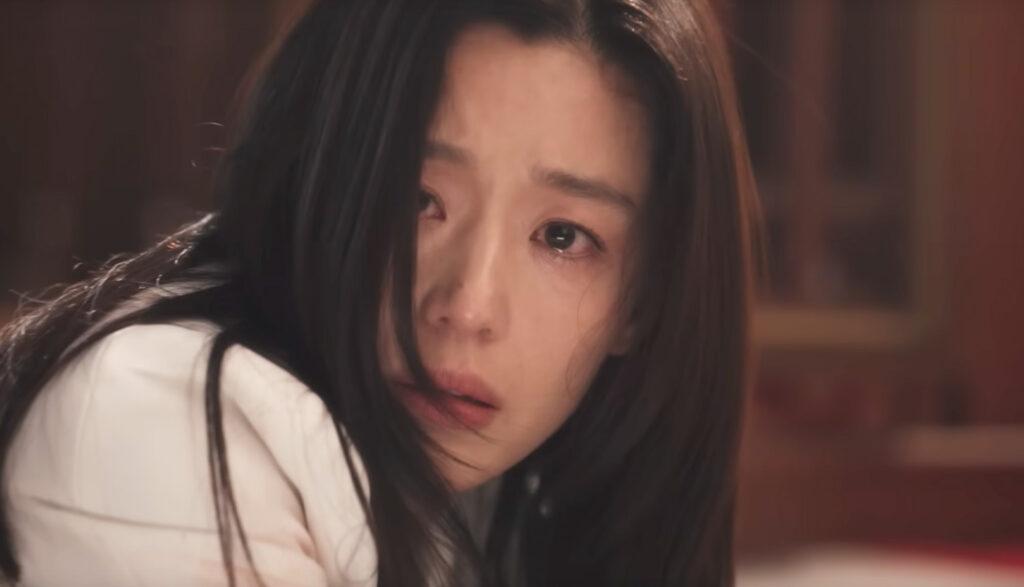
Unfamiliar
Filled with gritty violence and foul language, when it comes to this German spy drama, “unfamiliar” is how most viewers should stay.

A career in politics is not for the faint of heart, and no one knows that better than Mun-ju.
The former South Korean ambassador to the United Nations returned home to find her country in turmoil. Politicians rage over the issue of “reunification.” While one side wants to reach peaceful terms with North Korea and unite the two countries, the other side will do everything in its power to keep that from happening.
As a political powerhouse, Mun-ju might have a thing or two to say on the issue. The only problem is that her husband, Jan-ik, is the darling of the New Republicans, an emerging political party that supports reunification. So when he announces his campaign for president of South Korea, Mun-ju decides to keep her mouth shut.
Mun-ju fully expects her husband’s candidacy to make him a target. What she doesn’t expect is to unravel a conspiracy that spans multiple continents, involves several people with nearly unlimited power, and could quite possibly launch the world into nuclear war.
No, politics aren’t for the faint of heart. As Mun-ju discovers, they could potentially destroy the world.
Did you read the above summary and assume that Tempest deals with themes of religious doubt and performative faith? No? Well, it does!
It may seem out of place among the show’s themes of political conspiracy and espionage, but this Korean thriller constantly comes back to faith.
Jan-ik is a professing Catholic, but only to gain favor with the public. “The only time a politician prays is when people are watching,” he tells his wife.
Mun-ju herself was baptized into the Catholic Church when she married Jan-ik, but she’s been wanting to leave for years. She thinks that God allows too much suffering, so she’d rather not believe in Him at all. In the wake of a sudden tragedy, she tells a priest that “if God was a human, I’d call him a psychopath.”
It’s not all doom and religious gloom, though. The priest tells Mun-ju that he’s seen his fair share of hardship, but he trusts in a greater purpose—even if it’s not one he can understand. Mun-ju may not agree, but it’s nice to see a bit of truth shining through the darkness.
And darkness is certainly present in Tempest. There are multiple scenes of gruesome violence—often in close-up: A slow-motion shot depicts a woman getting shot in the neck, and a man is assassinated in a church, resulting in a heavy flow of blood. Melee fights are tamer, with little blood or gore shown, but given the precedent, there’s no reason to believe that won’t change in the future. Car chases sometimes result in horrific crashes. And, of course, there’s the possibility of nuclear war on the horizon.
Tempest raises some complicated (but relevant) questions about maintaining faith in a world of hardship, and there’s a compelling mystery at the show’s core. Strong violence, however, may make this Korean thriller a tough watch.
(Editor’s Note: Plugged In is rarely able to watch every episode of a given series for review. As such, there’s always a chance that you might see a problem that we didn’t. If you notice content that you feel should be included in our review, send us an email at letters@pluggedin.com, or contact us via Facebook or Instagram, and be sure to let us know the episode number, title and season so that we can check it out.)
When her husband, Jang Jan-ik, launches his campaign for the presidency of South Korea, former U.N. ambassador Seo Mun-ju discovers a conspiracy with the potential to start a nuclear war.
Jan-ik has a dream about Mun-ju being shot in the neck. We see this dream depicted in a slow-motion close-up that includes plenty of blood. Later, a man is shot in the neck for real while speaking in a church; a similar amount of blood is shown.
Jan-ik pretends to be a devout Catholic to gain favor with voters. However, Mun-ju dislikes going to church and has an aversion to Christianity. She tells Jan-ik that her regular morning runs are her version of morning prayers. The couple attends a mass for peace between North and South Korea; the congregation prays, and Jan-ik reads from Scripture. He gives Mun-ju a cross necklace, telling her she should wear it for photos. Later, Mun-ju talks with a priest about her doubts with faith, saying that any God who allows tragedies to happen is not one she wants to believe in. The priest is understanding, but he tells her that he believes in a greater plan and that everything happens for a reason.

Lauren Cook is serving as a 2021 summer intern for the Parenting and Youth department at Focus on the Family. She is studying film and screenwriting at the University of North Carolina School of the Arts. You can get her talking for hours about anything from Star Wars to her family to how Inception was the best movie of the 2010s. But more than anything, she’s passionate about showing how every form of art in some way reflects the Gospel. Coffee is a close second.

Filled with gritty violence and foul language, when it comes to this German spy drama, “unfamiliar” is how most viewers should stay.

Oliver Twist’s Artful Dodger isn’t 13 anymore: He’s an adult. And being an adult comes with more grown-up problems.

Though it’s compelling, the content concerns in Prime Video’s ‘Cross’ might be enough to cross it off your watch list.

‘The ‘Burbs’ is Peacock’s attempt to adapt the 1989 movie of the same name. But a fresh coat of paint doesn’t hide the content issues.